How many individual tools and Excel spreadsheets is your organization juggling to get the data and insights you need to inform your search and content marketing decisions? If your answer is more than two, then it might be time to look at switching over to an enterprise grade SEO and marketing intelligence platform. Chances are, multiple tools and reporting structures are time consuming and you’re constantly attempting to reconcile the differences in the data you’re collecting. A single platform that provides multiple features for various functions solves the problems associated with data deluge or drought and the kludgy workflows associated with using multiple tools.
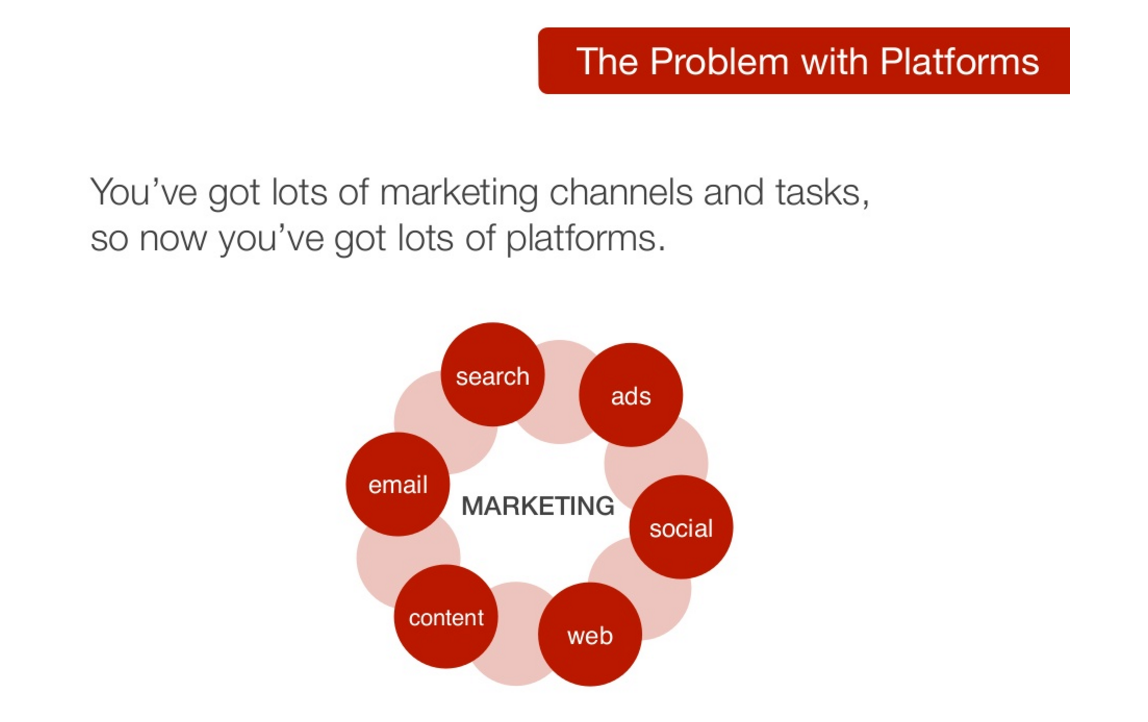
As soon as you start to look for the right platform to fit your needs, you’ll immediately notice that there are multiple solutions out there. Asking the right questions of your organization and of the platform providers will ensure that you survive the platform selection process and make the right choice for your brand.
Once you understand what you’re trying to accomplish, ask these 10 key questions to make sure the platform you choose will meet your needs now and in the future.
1. What keyword and content insights are provided?
Since Google stopped providing keyword data three years ago, marketers and SEOs have been looking for a way to understand what words audiences are using when they search for solutions in their industry niches. While industry keywords are still available through Adwords, that data doesn’t tell you how your audiences are engaging with you and your content.
Some platform or service providers may tell you that getting granular keyword data is no longer necessary and that SEO practices like including Meta tags, placing keywords in the headline, and responding to keyword ranking data are outdated and frivolous. The problem is, building a content marketing program that doesn’t closely monitor search results and isn’t based on what audiences are looking for is like building a house without a foundation.
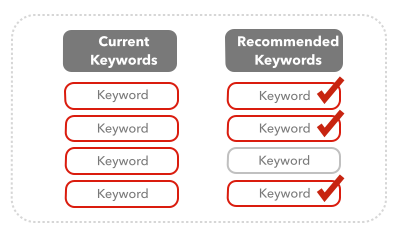 To create an effective and engaging content marketing program, you’ll want to understand what keywords are driving traffic to your site and base your content on the words and phrases people are using when they’re seeking the solutions your products or services offer. You’ll also want to understand how well that content fits with what people are looking for. Besides the keywords you’re already tracking, make sure the platform you choose can discover new keywords and can make suggestions based not only on what you are tracking, but also what keywords and topic you aren’t currently tracking, but should be.
To create an effective and engaging content marketing program, you’ll want to understand what keywords are driving traffic to your site and base your content on the words and phrases people are using when they’re seeking the solutions your products or services offer. You’ll also want to understand how well that content fits with what people are looking for. Besides the keywords you’re already tracking, make sure the platform you choose can discover new keywords and can make suggestions based not only on what you are tracking, but also what keywords and topic you aren’t currently tracking, but should be.
When you’re evaluating platforms, you’ll want a keyword feature set that includes:
- Easy user interface to add and manage keywords
- Automatic keyword discovery
- Top keyword ranking distribution and corresponding content information
- Average keyword rank compared to competitors
- Keyword ranking trends
- Competitor keyword trends
- Organic conversions based on tracked keywords
- E-Commerce revenue linked to specific keywords
- Search volume for specific keywords by search engine
- Projected search volume for tracked keywords
- Preferred landing page management tools
Because you don’t want to sort through thousands of keywords and all your content every day, you’ll want the ability to create and track groups of keywords and content based on current campaign, new product feature releases, geographies, or other key indicators. Make sure the platform you choose automates the process and assists in the inclusion of relevant keywords and content into specific groups.
2. What is included in competitor intelligence data?
Obviously, it’s important to track your competitors, their content, and their keywords across search engines and social media platforms. What’s not as obvious is the need to discover all the players who are competing with you for attention from your audience and the need to know specifically what content your audience is engaging with besides yours and your direct competitor’s. For that, you’ll need a platform that can match your keywords and content across the search engines and on social channels to all the other content that is gaining in rank for those same keywords.
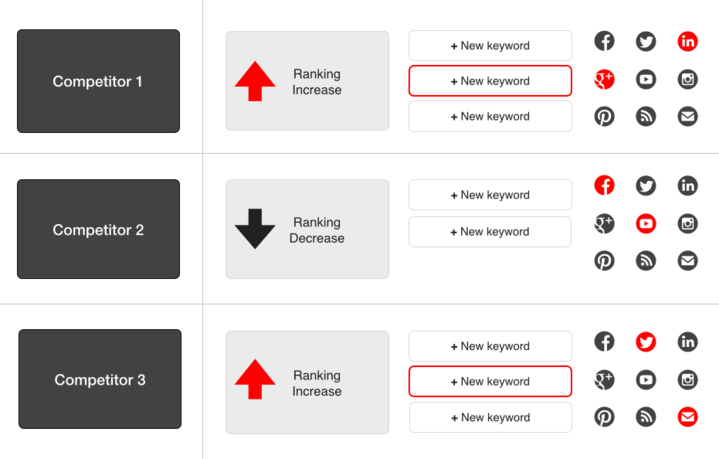
Use the competitor intelligence you gather to help you to decide what new content to create as well as what existing content to update or expand upon. You may find that a popular blog or industry publication is beating you in the SERPs. Although you can’t compete with their subscription numbers, you may decide to target them for a contributed article or inclusion in a round up article. Whatever the findings, you’ll want to know everyone who is taking audience share from you and where they’re gaining ground.
Any platform you choose should include the ability to analyze competitors and their content through:
- Competitor discovery
- Social media share of voice
- Social media audience insights
- Specific competitor content
- Competitor keyword ranking trends
- Competitor comparisons by channel
3. Are there international and local search capabilities?
The ability to get your message into global markets means reaching audiences on the search engines they use. Although there are many viable instances of Google in foreign lands, such as Google Australia, Google is not the search engine of choice in every global market. You’ll want to make sure the tool you use is one that will allow you to track your presence on the most popular search engines in your target global markets. Whether you need to see your data from Google, Yahoo, Bing, Baidu, Sogou, Qihoo 360 (So.com), Daum, Naver, or Yandex you should be able to get all the data from one platform and in the language of your target country.
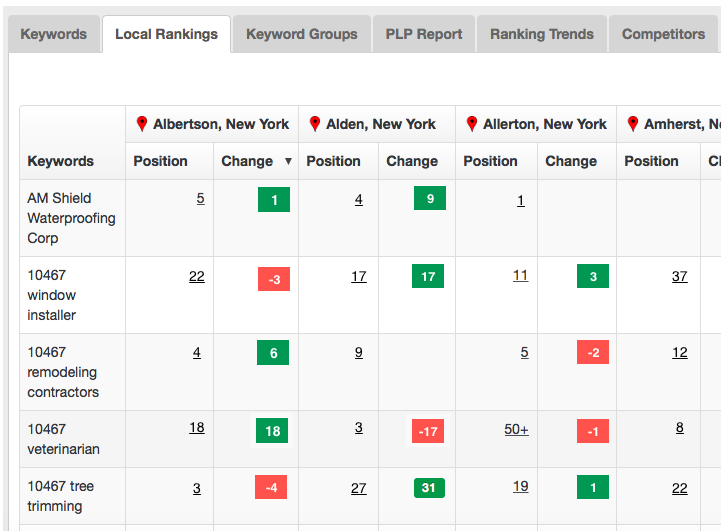
Even if you aren’t interested in marketing outside of the United States, you’ll want the ability to get search data specific to the geographic areas within the 50 states. Local search is gaining in importance and popularity along with the growth of the mobile device markets. In the future, those who are able to differentiate how target audiences in defined geographies are talking about topics of interest to their brand will be the ones creating the most effective marketing content.
The last thing you want is to pay extra for available features offered by your platform provider. Make sure your platform offers all available features, including international and local search, in a scalable platform that can be customized to meet your needs.
4. How granular are marketing channel insights?
When analyzing which marketing channels are working best for you and deciding where to invest future resources, you’ll want both at-a-glance information and deep channel insights.
First, you’ll want at-a-glance data to compare how each of your channels is performing day to day in comparison to other channels. You should be able to change your view of the data by changing your date range, specifying search engines or devices, view traffic by keyword groups or conversion types, or narrow your view to see only the marketing channels you care about at that moment.
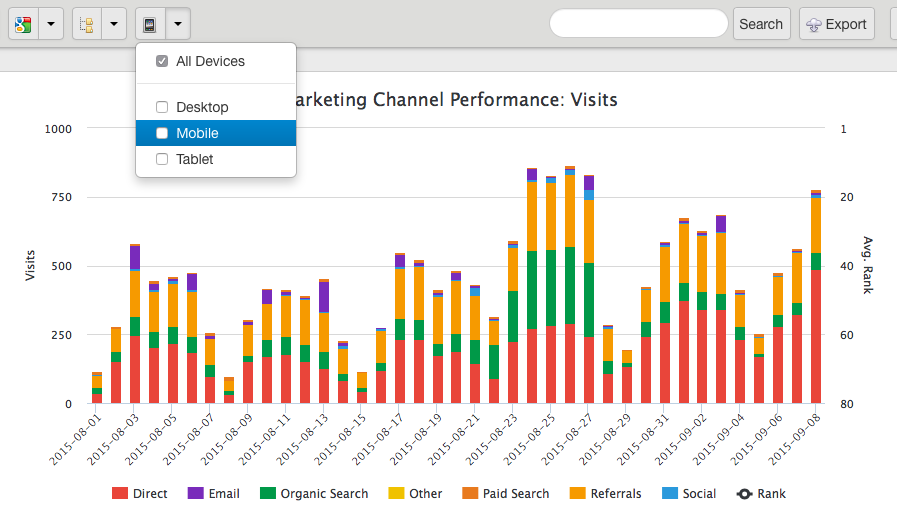 When you’re ready to use the data to make decisions, be sure you can get a deeper dive into each channel to see exactly where the traffic is coming from for each channel. At the granular level you should be able to discover:
When you’re ready to use the data to make decisions, be sure you can get a deeper dive into each channel to see exactly where the traffic is coming from for each channel. At the granular level you should be able to discover:
- Daily visits
- Page views
- New visitors
- Bounce rates
- Conversions
No enterprise SEO or content media platform is complete without a suite of social media tools. Whether or not social media lives in the public relations department or the marketing department, it’s important to understand its influence on traffic, conversions, and revenue goals. To understand how social media is contributing to your overall findability, you’ll want to be able to track your audience engagement and share of voice compared to your competitors.
A full suite of social media intelligence will include the ability to understand:
- Audience engagement across major social channels for you and your competitors
- Which content is getting the most views on social for yourself and your competitors
- Social engagement increases and declines by social channel
- Social media share of voice comparisons
5. What types of customizations are available?
If you’re purchasing an enterprise grade platform, you’re going to want to get the data you want; in the way you want it. Make sure you can customize dashboards for yourself, your teammates, and your clients. Similarly, you should be able to create custom reporting templates that you can use over and over again and across multiple accounts, without having to recreate them each time.
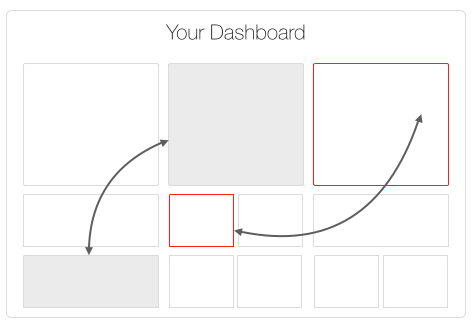
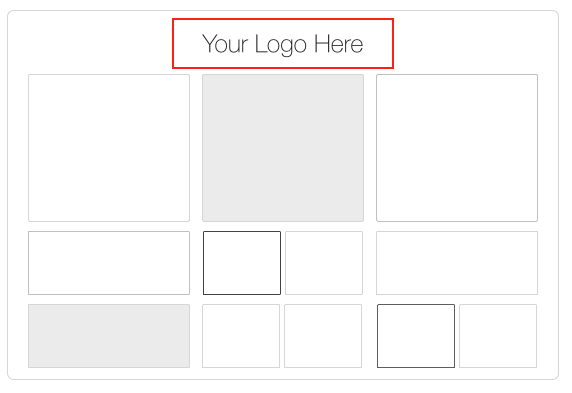 When it comes to customizations, the tool you choose should be flexible enough to meet your needs and the platform provider should be willing to create additional customizations based on your specifications. At the very least you should expect standard customizations at no additional cost for:
When it comes to customizations, the tool you choose should be flexible enough to meet your needs and the platform provider should be willing to create additional customizations based on your specifications. At the very least you should expect standard customizations at no additional cost for:
- Dashboards
- Reports
- White labeling
6. What are the unique and proprietary features?
You should expect your platform to integrate and gather information from Google Analytics (or other analytics program) and Google Webmaster tools. Beyond that, the tool should also have built-in proprietary crawlers to provide you more data than what you can get on your own.
Most importantly, proprietary solutions should at least address the “Google Keyword Not Provided” issue by having their own search bots to identify and track keywords. In addition, other proprietary algorithms should give you data you can’t get anywhere else. When you’re evaluating platforms, make sure you know how the unique features of one platform outperform another to help you meet your stated goals.
7. Are site audit and SEO recommendations easy to follow?
If you’re looking for an enterprise SEO and content marketing intelligence platform, you’re probably anxious to improve your overall findability on the web. A one-off site audit report is ok if you’re just getting started, but if you’re managing multiple websites, campaigns, and content, you’ll want to make sure you’re continuing to optimize keywords, content, and page structure as well as improving overall crawlability on a regular schedule.
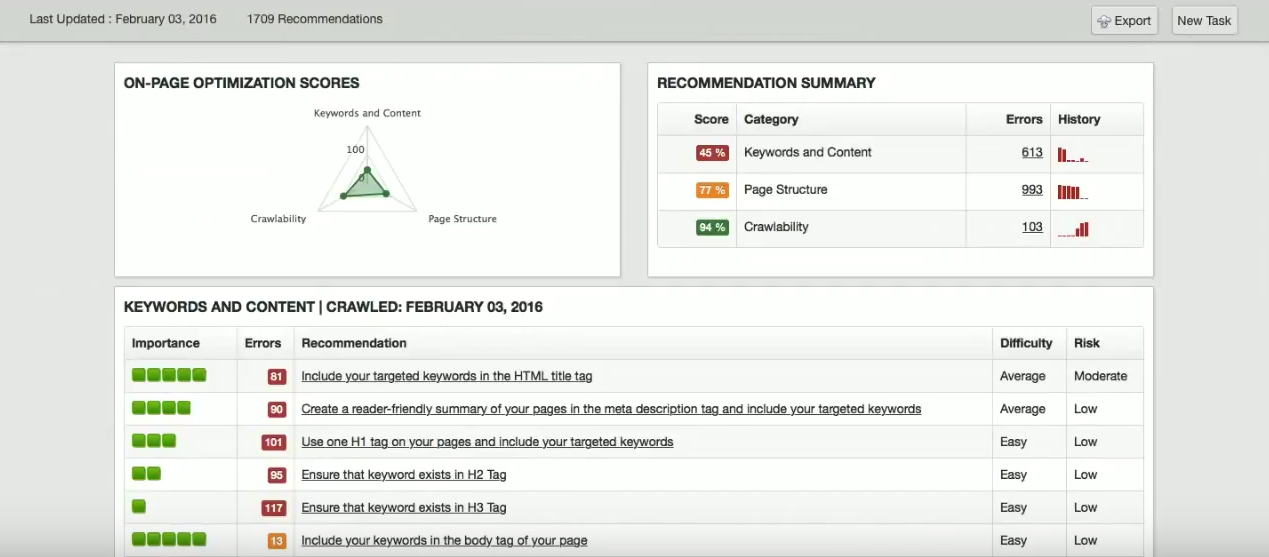 Recommendations for improvement should be easy to understand, specific, and reportable. Valuable and usable recommendations should be:
Recommendations for improvement should be easy to understand, specific, and reportable. Valuable and usable recommendations should be:
- Sortable by difficulty and risk
- Sortable by content and keyword group
- To help focus efforts on the most urgent changes first
- Part of the workflow so they can be assigned and tracked
- Easily reportable to show progress over time
Your enterprise SEO platform should provide you with an on-going content and site audit that can be reviewed and with timely recommendations that can be addressed before SEO errors affect your findability.
8. What about onboarding and on-going support?
Getting started with a new platform is an investment. It shouldn’t also take weeks for your team to get up and running with the data it provides. Ask questions about the onboarding process up front:
- How long does it take to get started?
- Is there a charge for onboarding?
- What about new team members – who trains them?
- How long does it take to learn the product?
- What is the cost of training?
Beyond just getting started, find out if there are resources and additional materials to help you and your team benefit from the digital marketing and SEO strategy knowledge base within the provider’s team. Make sure you can benefit from ongoing thought leadership and best practices in SEO and content marketing.
9. What workflow features are included?
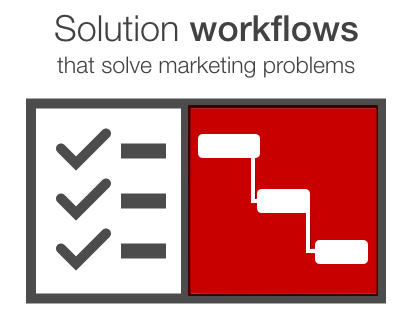 If you’ve been working with more than two tools, or you’ve been trying to gather data from disparate sources, you know the problem of a kludgy workflow. Your enterprise platform should solve your workflow problem with features that allow you to assign tasks to team members and track progress toward goals.
If you’ve been working with more than two tools, or you’ve been trying to gather data from disparate sources, you know the problem of a kludgy workflow. Your enterprise platform should solve your workflow problem with features that allow you to assign tasks to team members and track progress toward goals.
Workflow features should allow you to keep track of campaigns and individual tasks and should include:
- Task assignment,
- Progress management
- Other workflow options to make sure your marketing is on track.
10. What’s on the feature roadmap?
The platform you choose should fit your needs now and match your projected needs as your content marketing and SEO programs continue to grow and develop. Make sure the platform you choose is on track to grow with you and that the provider has a roadmap for new features. In addition, you’ll want to hear that they base their new feature decisions, at least partially; on the input and requests they get from current customers.
Some questions to ask:
- What features are in development?
- How often are features released?
- What’s the long-term roadmap?
- How much is the roadmap determined by current customer needs?
One final question
Before you sign on the dotted line, make sure that every feature you discussed with the provider is included in the pricing. If it’s not, find out why and make sure you know what you’re paying for. You don’t want to end up with a platform that requires you to use outside tools to get all the functionality you want. If it does, then you’re no better off than before you embarked on your journey to find an enterprise grade SEO and marketing intelligence platform.

